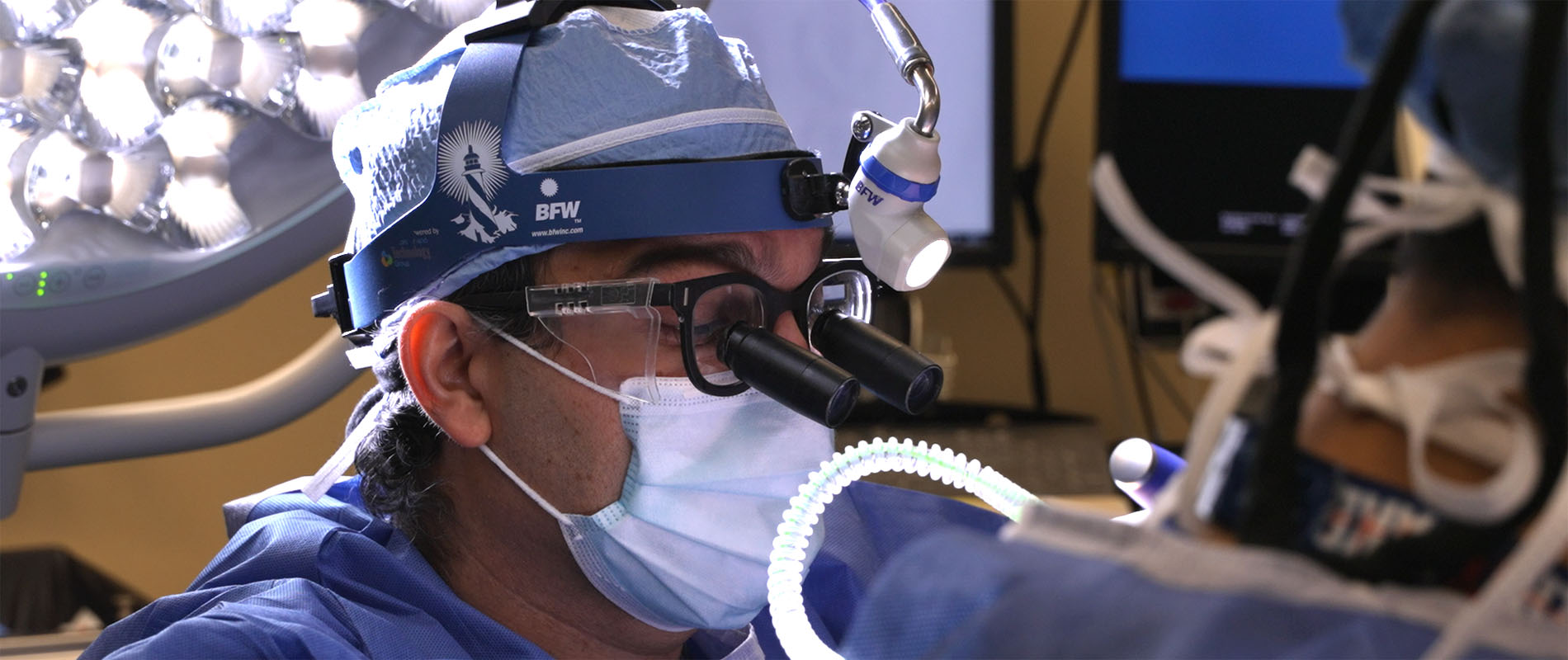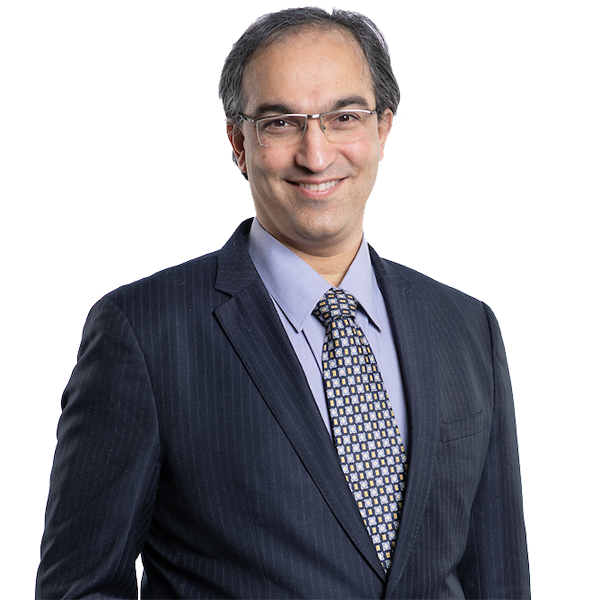
The Program
Our team at the Peter Munk Cardiac Centre offers a comprehensive Minimally Invasive Cardiac Surgery (MICS) Program, performing minimally invasive single and multi-vessel coronary artery bypass surgeries, aortic, mitral and tricuspid valve repair and replacements, maze procedures for atrial fibrillation, and aortic surgeries, among others.
MICS procedures achieve similar or better outcomes compared to conventional sternotomies (where the breastbone is opened to access the heart) while maintaining the highest possible patient safety.
Compared to a conventional sternotomy, MICS:
- reduces blood loss during surgery,
- enables early return to routine activity,
- and reduces the risk of post-surgical complications, thereby shortening the hospital stay.
Patients can also expect significantly less scarring and no movement restrictions following MICS procedures. A smaller incision allows for a quicker recovery, granting patients independence soon after discharge from the hospital.
Dr. Piroze M. Davierwala

Dr. Piroze M. Davierwala is the Surgical Director of the Minimally Invasive Cardiac Surgery (MICS) Program at the Peter Munk Cardiac Centre, Toronto General Hospital, UHN, and an Associate Professor and Surgeon-Investigator, Division of Cardiac Surgery, Department of Surgery, University of Toronto.
Dr. Davierwala graduated from medical school in 1993. Between 1994-1996, he completed his residency in General Surgery and his Master's in General Surgery from the University of Pune, India. From 1997-2000, he completed his residency in Cardiovascular and Thoracic Surgery and obtained the degree of Master of Chirurgie from the University of Mumbai, India. Subsequently, he spent 3 years as a Clinical Fellow at the University of Toronto, Canada.
Following the completion of his training, Dr. Davierwala worked as a consultant in Cardiovascular Surgery in two private hospitals in Pune. In 2009 he acquired a staff position at the Leipzig Heart Center - a world-renowned institute for minimally invasive cardiac surgery located in Germany.
During his 12-year tenure in Leipzig, Dr. Davierwala developed expertise in the entire spectrum of MICS procedures including mitral, tricuspid, and aortic valve repairs, coronary artery bypass, and aortic surgery. Notably, he pioneered the development of and established the technique of multi-vessel total arterial minimally invasive coronary surgery with the use of bilateral internal mammary arteries.
In addition to his leadership in the field of minimally invasive cardiac surgery, Dr. Davierwala has tremendous experience in performing complex reconstructive surgery for endocarditis, repairing complications of myocardial infarction, and performing thoracic aortic operations, among other procedures. His research, which encompasses clinical studies and trials, has been published in numerous international, peer-reviewed journals, and he is the author of several book chapters.
Dr. Davierwala is a Fellow of the American Heart Association and a member of the American Association of Thoracic Surgeons, the European Association for Cardiothoracic Surgery, and the International Society for Minimally Invasive Cardiothoracic Surgery.
The Future is Minimally Invasive |
excerpted fromPeter Munk Cardiac Centre 2021 Annual Report
Q&A with Dr. Davierwala
What drew you to medicine?
From a very young age, I was always interested in following in the footsteps of my mother, who was a physician in obstetrics and gynecology. But it was my fascination with the circulatory system in high school that led me to pursue cardiac surgery.
What brought you to the Peter Munk Cardiac Centre?
I'm ready for new challenges – and the opportunity to lead the MICS Program at the Peter Munk Cardiac Centre and advance the minimally invasive program in valvular and coronary surgery provides just that. UHN is known to support new technology and innovation, which makes it the ideal institution for me – and the University of Toronto is one of the leading universities in North America. The sky is the limit as far as availability of resources for research is concerned.
Why do you think Canada has been slow to adapt minimally invasive cardiac surgery (MICS) techniques?
The paucity of MICS procedures being performed in and around Toronto can be attributed to the reluctance of surgeons to deviate from the conventional. The techniques used to perform open-heart operations are well-established; they've been found to be feasible, safe, effective, and reproducible. But adverse events following such procedures have been accepted as the norm after cardiac surgery. MICS reduces, and in some cases, eliminates the complications that could occur following a sternotomy.
What do you envision for your new clinic at the Peter Munk Cardiac Centre?
Our vision is to develop a world-class state-of-the-art MICS program that will not only offer the entire spectrum of surgeries for the benefit of our patients, but will also provide training to residents and fellows from Canada and around the world.
Apart from transcatheter procedures, there is not much MICS surgery being performed in other hospitals in Toronto. Patients who wish to have such surgeries have to travel to other cities. We want to eliminate the need for travel for these procedures and give patients the opportunity to be with family and friends as they recover.
For me personally, the cardiac surgical division at the Peter Munk Cardiac Centre played a very big role in shaping my career as a cardiac surgeon; it helped me get to where I am today. In a way, I see this as an opportunity to give something back to the division.
